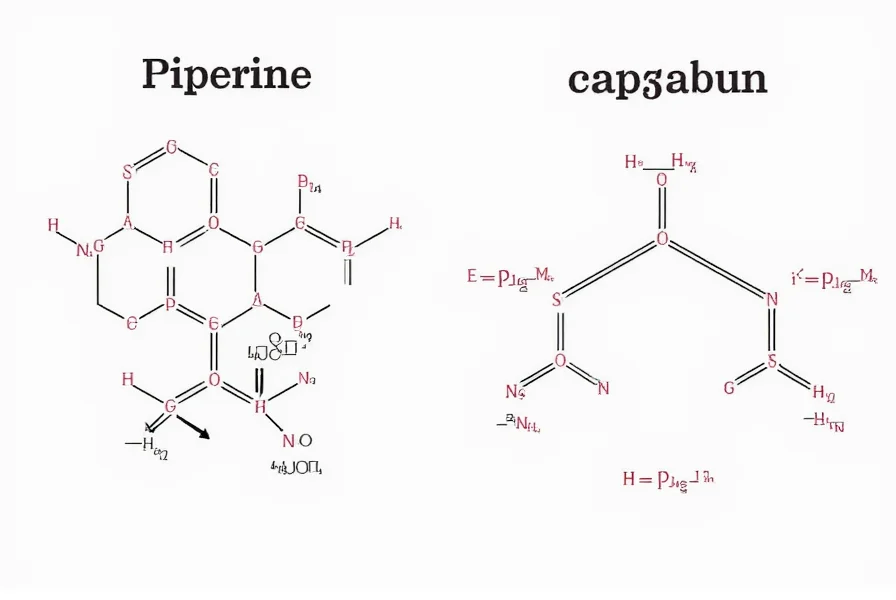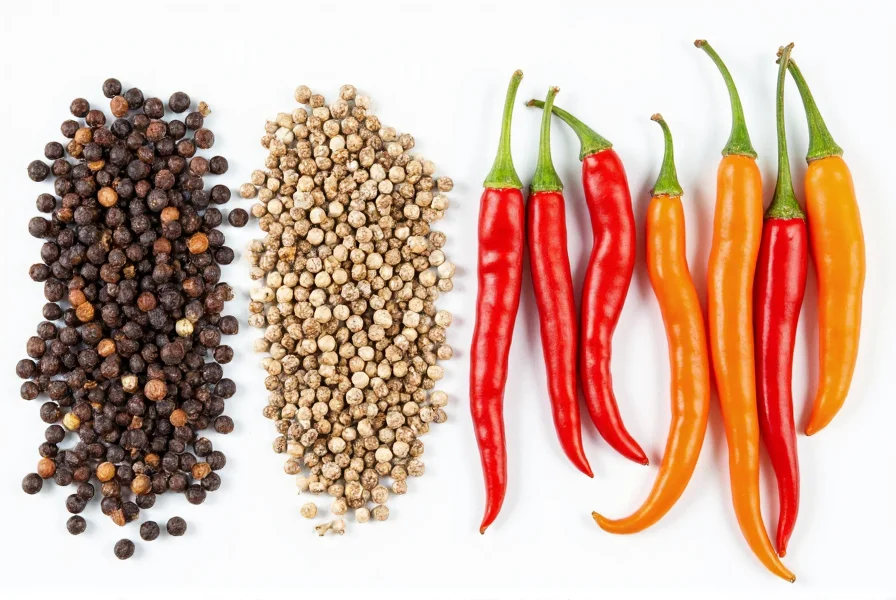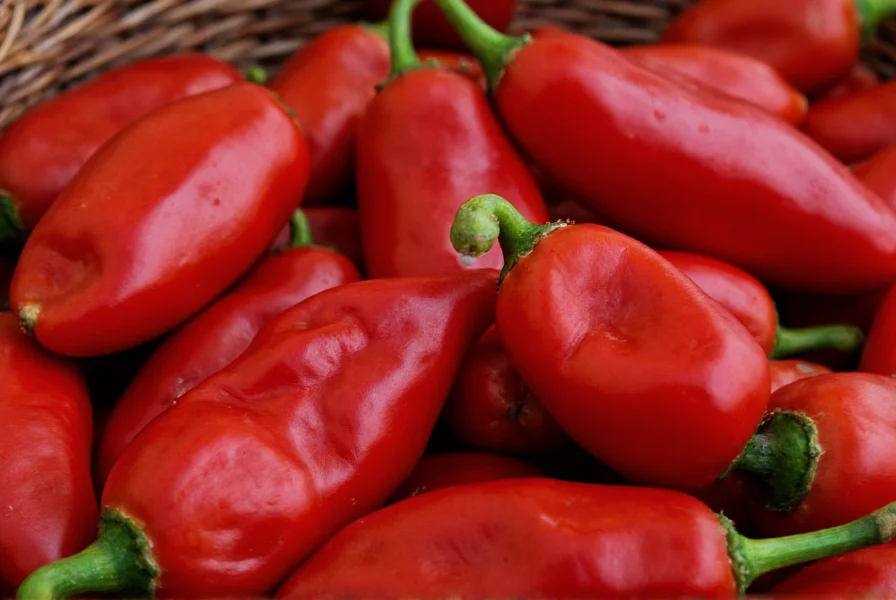Yes, black pepper is mildly spicy, but not in the same way as chili peppers. Black pepper contains piperine, which creates a sharp, warming sensation primarily on the tongue, while chili peppers contain capsaicin that produces a burning heat felt throughout the mouth and throat. This fundamental chemical difference explains why black pepper isn't measured on the Scoville scale like true 'hot' peppers.
When you ask is pepper spicy, the answer depends entirely on which type of pepper you're referring to. The confusion stems from English using 'pepper' for two completely different plant families with distinct chemical compounds responsible for their heat.
Black Pepper vs. Chili Peppers: Understanding the Fundamental Difference
Most people asking is pepper spicy are thinking of the black pepper sitting in their kitchen spice rack. This common seasoning comes from the Piper nigrum plant, while 'hot' peppers like jalapeños and habaneros belong to the Capsicum genus. These plants evolved different defense mechanisms:
- Black pepper produces piperine, creating a sharp, immediate sensation that dissipates quickly
- Chili peppers produce capsaicin, causing a burning sensation that builds and lingers
The Science Behind Pepper Heat: Piperine vs. Capsaicin
Understanding why is pepper not spicy like chili requires examining the biochemical differences. Piperine in black pepper activates TRPV1 receptors differently than capsaicin in chili peppers. This results in:
| Compound | Source | Heat Sensation | Duration | Scoville Rating |
|---|---|---|---|---|
| Piperine | Black pepper | Sharp, immediate | Short-lived (seconds) | Not applicable |
| Capsaicin | Chili peppers | Burning, building | Prolonged (minutes) | Varies by pepper type |
Unlike capsaicin, piperine isn't measured on the Scoville scale because it doesn't produce the same type of heat. This explains why does black pepper feel spicy but isn't technically classified as 'hot' in culinary terms.

Black Pepper's Heat Level in Culinary Context
When considering is pepper considered spicy in cooking, professional chefs classify black pepper as pungent rather than hot. Its heat:
- Primarily affects the front of the mouth and tongue
- Creates a warming sensation rather than burning
- Doesn't trigger the same physiological responses as chili heat (sweating, flushing)
- Complements rather than dominates other flavors
This makes black pepper suitable for people who can't handle spicy food like chili peppers but still want some heat complexity in their dishes.
Common Misconceptions About Pepper Spiciness
Many people wonder is black pepper spicy like cayenne due to naming confusion. The term 'pepper' was applied to chili peppers by European explorers who noticed their pungency resembled black pepper. However, they're botanically unrelated. This historical naming error continues to cause confusion today.
Another common question is is pepper hot like jalapeno - the answer is no. A single jalapeño rates between 2,500-8,000 Scoville Heat Units (SHU), while black pepper's piperine doesn't register on this scale at all. White pepper, made from the same plant but processed differently, has a slightly different heat profile but still lacks true 'spiciness.'

Practical Implications for Cooking and Consumption
Understanding black pepper heat level helps in recipe development and dietary planning. If you're sensitive to capsaicin but enjoy pungent flavors, black pepper offers a viable alternative. Its heat:
- Increases slightly when freshly ground
- Differs by pepper variety (Tellicherry vs. Lampong)
- Can be controlled more precisely than chili heat
- Works well in both hot and cold preparations
For those exploring pepper spiciness compared to jalapeno, consider that you'd need to consume an unrealistic amount of black pepper to approach even the mildest chili's heat level. The sensation simply operates through different biological pathways.
Conclusion: Defining Pepper Spiciness Accurately
The question is pepper spicy requires careful distinction between black pepper and chili peppers. Black pepper provides pungency through piperine, creating a different sensory experience than the capsaicin-based heat of chili peppers. Recognizing this difference helps cooks and consumers make informed choices about flavor profiles and heat tolerance. Whether you're asking is black pepper spicy for dietary reasons or culinary precision, understanding these botanical and chemical distinctions provides valuable context for navigating the world of 'peppers.'
Frequently Asked Questions
Is black pepper considered spicy on the Scoville scale?
No, black pepper isn't measured on the Scoville scale because it contains piperine rather than capsaicin. The Scoville scale specifically measures capsaicin concentration found in chili peppers, not the pungency from black pepper.
Why does black pepper feel spicy if it's not technically hot?
Black pepper creates a sharp, warming sensation through piperine activating certain nerve receptors differently than capsaicin. This produces a temporary pungent feeling that many describe as 'spicy' even though it's chemically distinct from the burning heat of chili peppers.
Can people who can't handle spicy food eat black pepper?
Yes, most people who avoid chili peppers due to heat sensitivity can comfortably consume black pepper. The piperine in black pepper creates a different sensation that's generally more tolerable, though extremely sensitive individuals might notice mild irritation at high quantities.
Does the spiciness of black pepper increase when cooked?
Unlike chili peppers whose heat can mellow or intensify with cooking, black pepper's piperine content remains relatively stable. However, prolonged high-heat cooking can cause some flavor compounds to evaporate, potentially making the remaining piperine more noticeable in the final dish.











 浙公网安备
33010002000092号
浙公网安备
33010002000092号 浙B2-20120091-4
浙B2-20120091-4